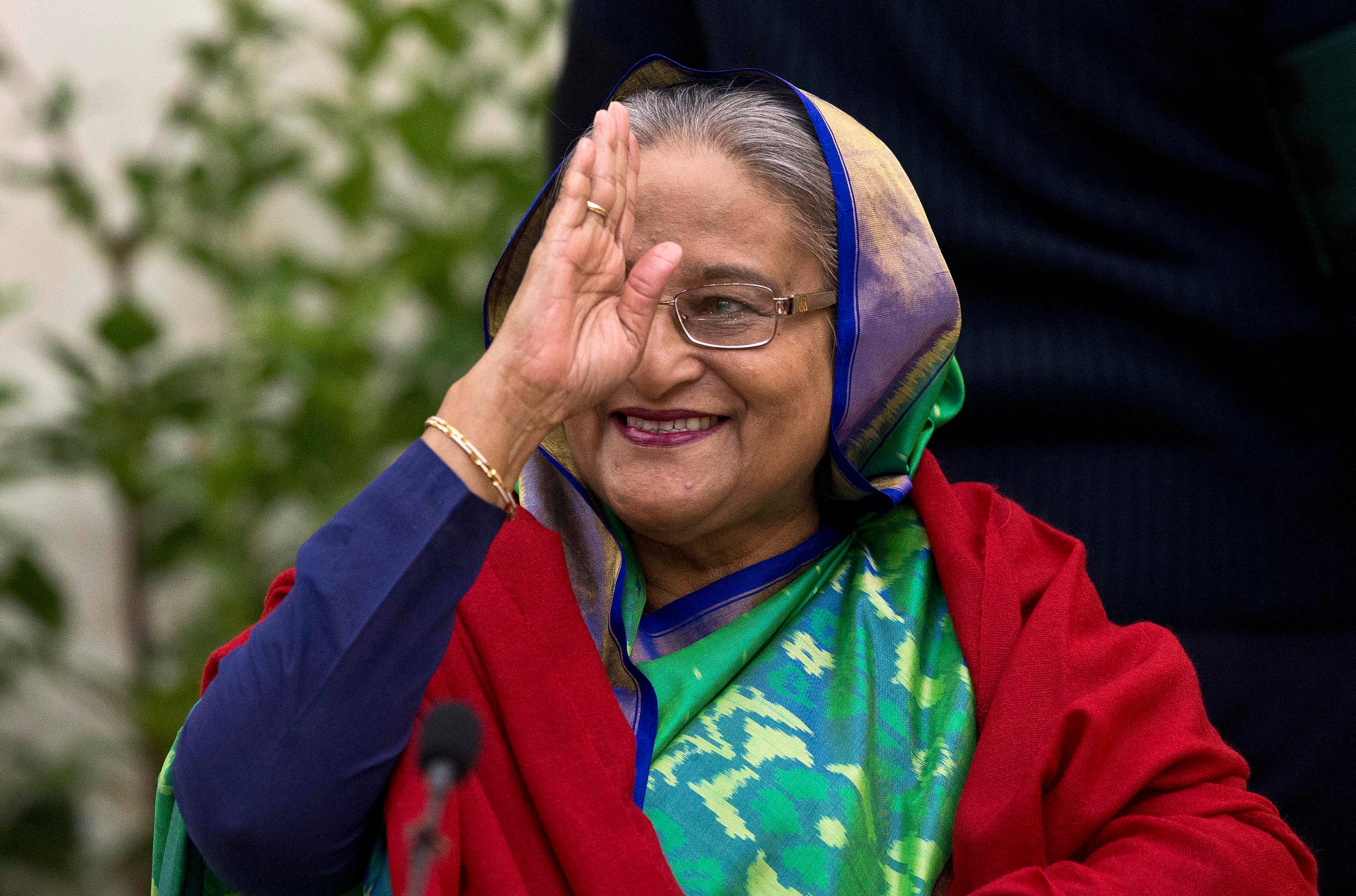Bangladesh PM tells UN that Myanmar must take Rohingya back
Bangladesh’s leader has told a visiting U.N. official that hundreds of thousands of ethnic minority Rohingya refugees living in camps in Bangladesh must return home to Myanmar, where they had fled violent persecution

Bangladesh's leader told a visiting U.N. official on Wednesday that hundreds of thousands of ethnic minority Rohingya refugees living in overcrowded camps in Bangladesh must return home to Myanmar, where they had fled waves of violent persecution.
Prime Minister Sheikh Hasina made the comment to U.N. High Commissioner for Human Rights Michelle Bachelet in Bangladesh’s capital, Dhaka. Bachelet arrived on Sunday and visited Rohingya camps in Cox’s Bazar district near the border with Myanmar.
“The Rohingya are nationals of Myanmar and they have to be taken back,” Hasina was quoted as saying by her press secretary, Ihsanul Karim.
Muslim Rohingya face widespread discrimination in Buddhist-majority Myanmar, where most are denied citizenship and many other rights. More than 700,000 fled to Bangladesh starting in late August 2017 when the Myanmar military launched a “clearance operation” against them following attacks by a rebel group. The safety situation in Myanmar has worsened following a military takeover last year.
Currently, Bangladesh is hosting more than 1 million Rohingya refugees.
The refugees will mark the fifth anniversary of their latest influx in Bangladesh amid botched attempts to send them home. Earlier this month, Bangladesh sought cooperation from China in repatriating Rohingya to Myanmar during a visit by Foreign Minister Wang Yi. China had brokered a November 2017 agreement with Myanmar aimed at sending them back.
Hasina and several Cabinet ministers earlier expressed frustration over what they called Myanmar's inaction in taking them back under the agreement. The U.N. and Bangladesh authorities have tried at least twice to began repatriations, but the refugees refused to go, citing safety concerns in Myanmar.
When Bachelet visited the camps on Wednesday, refugees urged the U.N. to help improve safety inside Myanmar so they can return.
The U.N. said in a statement that the refugees described “their grievances, their pains” to Bachelet.
“When our rights are respected, we can have our livelihoods again, and we can have land, and we can feel that we are part of the country,” it quoted refugees as telling her.
Bachelet emphasized the importance of ensuring that safe and sustainable conditions exist and that any returns be conducted in a voluntary and dignified way, it said.
“The U.N. is doing the best we can to support them. We’ll continue doing that,” she said. “But we also need to deal with the profound roots of the problem. We need to deal with that and ensure that they can go back to Myanmar -– when there are conditions for safety and voluntary return.”
In March, the United States said the oppression of Rohingya in Myanmar amounts to genocide after authorities confirmed accounts of mass atrocities against civilians by Myanmar’s military in a widespread and systematic campaign against the ethnic minority.